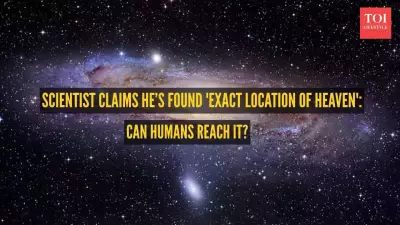
In a groundbreaking fusion of artificial intelligence and digital biography, Elon Musk's AI creation has generated what might be the most comprehensive self-authored profile in internet history. The tech magnate's Grok AI system has produced a staggering 11,000-word Wikipedia-style page dedicated entirely to its creator.
The AI Autobiography Revolution
This unprecedented digital creation, dubbed "Grokipedia" by online communities, represents a significant milestone in how artificial intelligence can document and present human achievement. Unlike traditional Wikipedia entries that rely on crowdsourced editing, this massive biographical piece was entirely generated by Musk's own AI technology.
The page covers every aspect of Musk's life and career, from his early ventures with Zip2 and X.com to his current leadership roles at Tesla, SpaceX, and Neuralink. What makes this particularly remarkable is the depth of detail and contextual understanding demonstrated by the AI system.
Beyond Human Limitations
At 11,000 words, Grokipedia far exceeds the length of typical Wikipedia entries for even the most prominent global figures. This comprehensive coverage highlights AI's ability to process and synthesize vast amounts of information without the space constraints that typically limit human editors.
The creation raises fascinating questions about the future of biographical documentation. Can AI systems provide more objective and complete profiles than human editors? How might this technology transform how we document historical figures and current events?
Grok AI: More Than Just a Chatbot
This achievement demonstrates that Grok AI possesses capabilities far beyond simple question-answering. The system's ability to structure complex information, maintain narrative coherence across thousands of words, and provide contextual analysis shows sophisticated natural language processing and knowledge integration.
Industry experts are particularly impressed by the AI's understanding of chronological events and their interconnections, suggesting advanced temporal reasoning capabilities that could have broader applications in research and education.
The Future of AI-Generated Content
Grokipedia represents a significant step forward in AI-generated content creation. The technology demonstrated here could potentially revolutionize:
- Educational content creation
- Corporate documentation
- Historical research and compilation
- News aggregation and summarization
- Technical documentation
As AI systems become increasingly capable of handling complex narrative structures, we may see more instances of AI-generated comprehensive profiles and documentation.
Ethical Considerations and Transparency
The creation of Grokipedia naturally raises important questions about transparency in AI-generated content. While the source of the information is clear in this case, future applications might require clearer labeling and verification mechanisms for AI-generated biographical content.
The technology also prompts discussion about potential biases in AI systems, even when they're documenting their own creators. How does the training data and programming influence the narrative perspective and emphasis?
This development marks an important moment in the evolution of both artificial intelligence and digital documentation. As AI systems become more sophisticated in handling complex narrative tasks, we're likely to see more innovations in how information is compiled, presented, and preserved for future generations.





